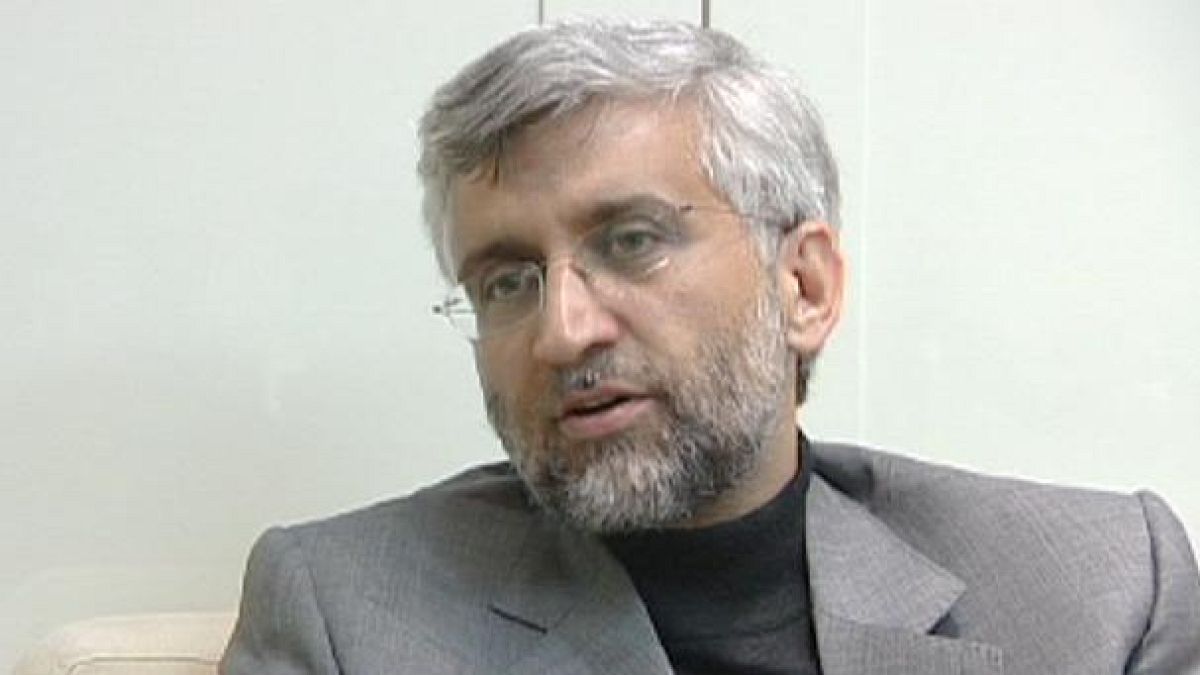After a 14-month rupture of negotiations between the five permanent members of the UN Security Council, plus Germany – known as the 5+1 – and Iran, followed by international sanctions, the two sides have re-entered negotiations on Iran’s nuclear programme. euronews spoke with Iran’s chief negotiator on the matter, in Geneva.
Nima Ghadakopur, euronews:
What’s your goal and what do you expect to come out of negotiations on Iran’s nuclear programme?
Saeed Jalili:
Before coming to Geneva, I mentioned several important points. First, I said we would not let the right of a people be the object of a dialogue, since a people’s right can not be the object of the dialogue. The second point is that we consider the policy of dialogue under pressure inadmissible. I wrote to Mrs Ashton asking her to clarify her position. I also underlined before coming to Geneva that Iran is ready to use its regional political and economic capacities around common points. The big powers have given their point of view and we agreed to continue negotiations. That was Mrs Ashton’s conclusion, which was confirmed by the 5+1 group and ourselves.
euronews:
In Iran, some people consider that the country has attained nuclear self-sufficiency, and others in the West think that the Iranian authorities are trying to gain time. They say going on with negotiations is useless. In your opinion, what are the main reasons for restarting the negotiations?
Saeed Jalili:
The goal of our dialogues is cooperation. It is not focused only on nuclear matters. This dialogue is based on cooperation around common worries. Today one of the international community’s worries is the question of nuclear disarmament. Why are the big powers not disarmed yet? Why here in Europe has the United States violated the nuclear nonproliferation treaty and installed more than 240 nuclear warheads? That also worries Europe’s citizens – (these are essential questions being posed today) – among others the countries which provided the atom bomb to the Zionist regime. It’s a worry shared by the international community. These worries must be taken into account. And if these dialogues result in cooperation for nuclear disarmament in the world and prevent the proliferation of atomic weapons while encouraging peaceful cooperation among nations, they can be useful.
euronews:
Will Iran ask for an end to sanctions? This was raised by President Ahmadinedjad.
Saeed Jalili:
Listen, one of the subjects we have raised in the negotiations is that some people have miscalculated. With this, it is certain that they take bad decisions. In the past, they thought they could prevent the progress of the Iranian nation through sanctions. Today we find that these sanctions have imposed costs on those countries. Their companies contact us and complain they are deprived of the Iranian market. It’s a very serious subject. Today you can see that we find ourselves in the best economic and political situation, to such an extent that we are poised to realise the biggest economic project of the country considered as an act of economic surgery. If we didn’t have an acceptable economic situation how could we realise such a project?
Another point that warrants consideration is the murder of an Iranian scientist, which happened last week. It is a big scandal for the UN Security Council to have mentioned the name of Iranian scientists in these resolutions and then terrorists come and enforce those resolutions.
What is the rapport between the terrorists and the Security Council? As you know, the person in charge of Britain’s MI6 had said three weeks before this murder that they were seeking to prevent Iranian nuclear development through certain security measures.
euronews:
You consider the Security Council of the United Nations as having revealed the names of Iranian scientists for their assassination?
Saeed Jalili:
We think there is a direct connection. The fact that International Energy Agency inspectors give the names of Iranian scientists to the Security Council, and after it publishes them terrorists murder them… there the international community must be given a response.
